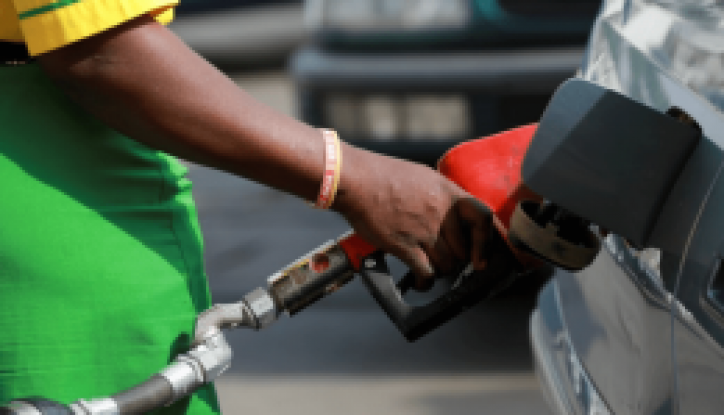Nigeria's Fuel Price Increment Will Significantly Affect Country's Expanding Gig Economy And Remote Work Sector
5th June 2023 03:12 PM ![]()

Since Nigeria's President Bola Tinubu declared that there would no longer be petroleum subsidy in his inaugural address at the Eagle Square, Abuja, the country has been gripped by chaos and outbursts.
First, fuel stations began shutting down and hoarding fuel thereby creating scarcity. Then came the sudden over 100 per cent hike in fuel price by stations operating nationwide. Fuel prices jumped as high as ₦600 and ₦700 per litre from ₦195 per litre in many parts of the country.
The tumultuous development also triggered a 100 per cent hike in transport fares, while long queues resurfaced at fuel stations in major cities like Lagos, Abuja, Ilorin, Benin, Asaba, and Port Harcourt.
The hike became official when it was confirmed by the Nigerian National Petrol Company Limited (NNPCL). In a statement, the NNPCL said the adjusted pump prices were in line with current market realities and that prices will continue to fluctuate to reflect market dynamics.
A new pricing template sent to marketers by NNPCL to oil marketers and seen by Access24 showed that Lagos State has the lowest price of ₦488 per litre while Maiduguri and Damaturu have the highest pump prices of ₦577 per litre.
Although the hike will affect significant sectors like transportation, cost of food and small and medium enterprises (SMEs), it will also put a dent in Nigeria's growing gig economy.
Freelancers from several sectors in the gig economy say the hike in fuel price will have a negative effect on their income, pricing and ability to deliver tasks solicited by clients on time.
"Going with my initial rate of charging, my income would reduce due to the amount I would spend on fuel as a result of the hike in pump price. Meeting deadlines might be a problem as it is not easy to get fuel due to long queue in filling stations. Increasing my fees at first can bring about reduction in the number of jobs, but in the long run they would come to terms with current realities I face here in Nigeria," said Yusuff Olalekan, a Lagos-based academic freelance writer and architect.
Olalekan revealed that he would be spending as high as ₦40,000 on fuel monthly due to the fuel hike. "I used to spend like ₦5000 for 20 litres of fuel. With this fuel hike, it means I would be spending like ₦10,000 for the same amount of fuel (20 litres) in a week. In a month, I used to spend ₦20,000 and now I would be spending ₦40, 000" Olalekan added.
A freelance content writer based in Ile-Ife, Osun State, Emmanuel Fadoju, bemoaned how the fuel hike would affect his income, but made no mention of increasing his charging fees.
"I am not a heavy generator user, but when I have deadlines I have to turn it on. The hike is definitely going to affect my income because I have budget more for fuel now and if there isn’t money for the fuel I have to find other means power my devices which will affect my ability to deliver on time," he told Access24.
Fadoju projected his monthly fuel expenses to increase from ₦10,000 to ₦25,000.
"I have a 12 litre keg I used to buy fuel for my generator and normally I fill that with ₦2500 worth of fuel. Yesterday I bought ₦5,000 fuel inside that same keg and still didn’t fill it. That’s two times the normal amount I used to get. In a month I spend about ₦10,000 on fuel, but now I am looking at ₦20,000 to ₦25,000 " saiad Fadoju.
Meanwhile, Salami Abayomi, a freelance academic writer based in Ogun State, said he would have to increase his fees in order to meet up with current economic realities.
"The fuel price hike will affect my work flow as I would have to bear extra costs on buying fuel to generate power supply. Inadvertently, this will also mean that I will have to increase my fees to meet up with the increase in the cost of things that have been affected by the fuel price hike," he lamented.
Abayomi added that before the hike, he used to spend up to ₦5000 per week for 25 litres, but now, he would have to spend up to ₦12,500 per week for the same amount of litres which pushes his monthly cost on fuel to ₦50,000.
While many Nigerians including freelancers are in support of the fuel subsidy's removal, there are reservations concerning how President Bola Tinubu’s administration will cushion its ripple effect on the economy.
Most freelancers and remote workers in Nigeria that rely on generators like Abayomi and Olalekan have been forced to adjust their spending on fuel as that's the most steady form of electricity supply in order to meet deadlines, attend vital meetings and key performance indicators (KPIs).
Nigeria's electricity supply is a sore point for freelancers and its society at large. The West African country's national electricity grid has collapsed more than 200 times in the last twelve years, regularly resulting in widespread blackouts. Hence freelancers and remote workers depend largely on getting power from generators which use fuel while others who have the money use alternative electricity supply like solar power and inverters.
The gig economy which is already a big part of Africa’s future of work is expanding in Nigeria, but at a slow pace. One of the reasons for this is largely attributed to freelancers, especially the younger ones not having the resources to run generators for stable electricity supply.
According to Mastercard Foundation, the African gig economy is expected to reach over 80 million gig workers by 2030. Further reports by Mastercard posited that the gig economy in Africa is growing at an average rate of 20% per year.